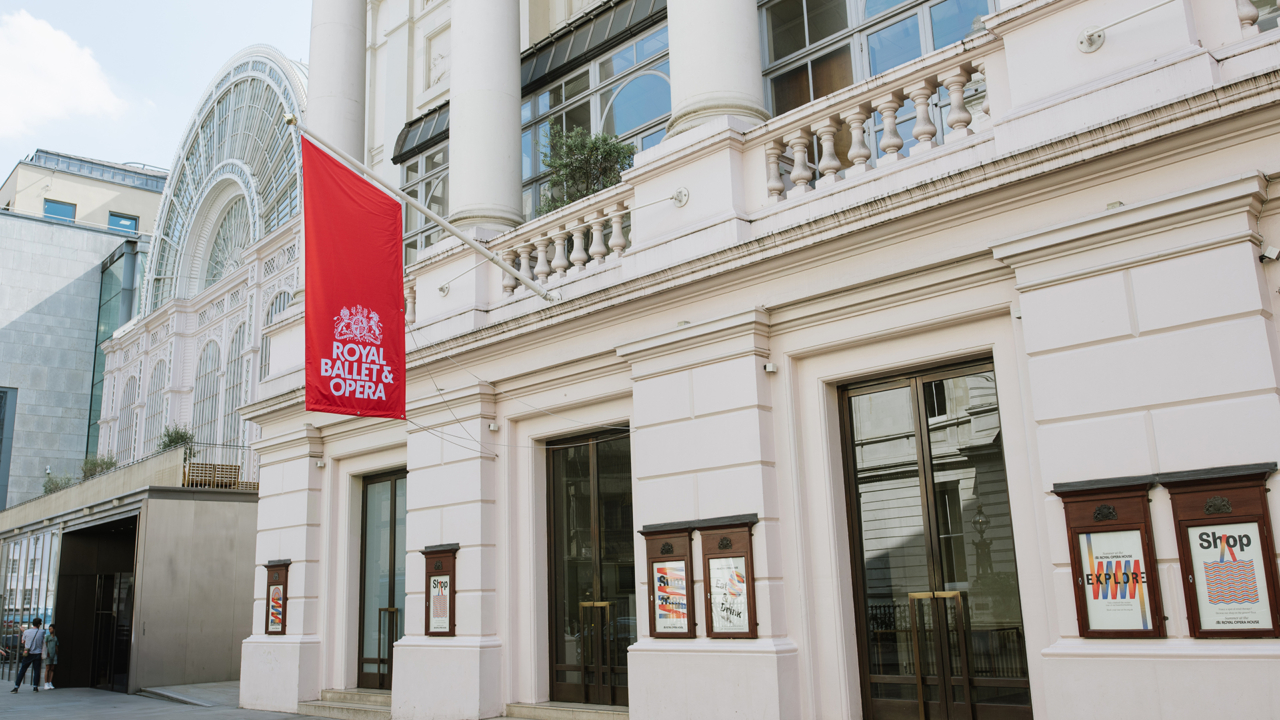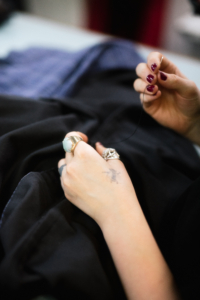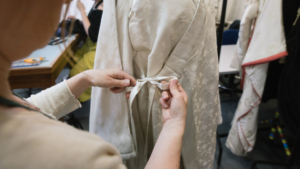- Posted on November 11th, 2024
Royal Ballet & Opera – Reducing Scope 3 Emissions and Leading Sector-Wide Change

This story of action, one of nine in depth case studies featured in Arts Council England and Julie’s Bicycle’s Environmental Programme Annual Report 2023-24, was written by The Royal Ballet & Opera . The Report features over 50 practical examples of cultural organisations taking climate action. Check out the full interactive report here.
The Royal Ballet & Opera is an opera house and major performing arts venue based in London. They share insights of how they reduced indirect (Scope 3 emissions) by engaging their suppliers, and showed leadership by working with peers to share knowledge and create sector-wide change.
About the Royal Ballet & Opera
The Royal Ballet, The Royal Opera, and the Orchestra of the Royal Ballet & Opera bring together the world’s most extraordinary ballet and opera artists. Our theatres are in Covent Garden but our work is experienced across the UK and globally through touring, cinema broadcasts, radio and TV, and streaming online.
The climate crisis is the most important issue facing the globe today. Recognising our international reach and leadership role within the UK arts sector, we have embraced our responsibility and obligation to reduce our greenhouse gas emissions. It is the ambition of the Royal Ballet & Opera to be a leader in environmental sustainability and to act as a catalyst for positive change in our industry.
“The arts have the opportunity to reach into people’s lives every day in so many ways, and can play a critical role in communicating the pressing needs of the climate emergency. There is the work we do to create more wisely of course, using fewer resources and better materials, reusing and sharing, and promoting a more circular economy in our buildings, tours, and productions. But there is also the broader reach we have into our communities, near and far, where we can encourage positive engagement and share what we have learned. Theatre making is a collaborative process of storytelling, telling stories both on and offstage that can have reach and resonance, signposting possibilities, ideas, and ways forward that mean together we can imagine the future, make changes, and make a difference.”
– Emma Wilson, Director of Technical, Production and Costume, Royal Ballet & Opera
Assessing Supply Chain Emissions
The largest emission source for Royal Ballet and Opera is from our suppliers and contractors; around 80% of our emissions are associated with the things we buy and the contracts we hold—these indirect emissions are known as Scope 3. As we will be setting Scope 3 emissions targets in 2025 we considered it important to have a better understanding of emissions from our supply chain before creating targets.

In the last few years RBO has undertaken spend analysis which estimates emissions based on spend in different sectors. Although this identifies the best areas to focus, we were already beginning to make changes to how and what we purchased, and these would not be reflected in a spend analysis. We wanted to understand what changes were needed to make a difference, to be able to track the reduction in emissions. Most importantly, we wanted existing suppliers to understand what our ambitions are and help us to achieve them by taking action themselves.
In 2023 we started to survey the suppliers that we spend the most money with, gathering data on environmental policies, accreditations, targets, energy sources, transportation, and training. The survey showed that many companies already have some form of environmental policy and accreditations, some have set net zero targets and many are looking at sustainable transport options and purchasing energy from renewable sources. However there are still a large number of companies that have not started to look at any of these areas or do not consider it a priority.
Supplier Engagement
The next step was to start conversations with our suppliers, to bring together contractors and suppliers working in similar fields together. We held two workshops in March 2024, one for facilities suppliers and the other for production related suppliers. We also invited a number of other theatres to the production workshop as we use many of the same specialist suppliers.
It was made very clear that the workshops were a collaborative and supportive event; each company was at a different stage of development in terms of their environmental performance and the sessions were aimed at sharing best practice and identifying solutions. The workshops involved a short introduction followed by small group conversations. Everyone was encouraged to discuss their successes and challenges and how RBO and other customers could help them to become more sustainable.
There were several common themes; transport and deliveries including consolidating orders to one or two deliveries per week, minimising urgent delivery orders, providing onsite storage for contractors to minimise van movements. There were also more strategic themes such as asking open-ended questions to contractors allowing them to use their expertise to provide options that may be more sustainable. Waste, reuse, repair, repurposing, and returning packing and old items were covered and there was discussion of the time required to provide sustainability information to clients that request it.

Results from Workshop Collaboration and Supplier Input
The common themes coming out of the workshop led to the idea of creating a standard set of questions so that suppliers can have responses ready or even published on their website. The five basic questions that have resulted from this discussion have been published as part of the Theatre Green Book resources here. A more detailed list for use with larger tenders and contracts has also currently being developed.
The workshops have resulted in networks being established between our suppliers. We were also encouraging them to calculate their own carbon footprints using free online tools, and this has led to a number of companies creating a carbon footprint for the first time, pledging to do this annually so that they can see the results of the changes they make. Internally we are beginning to implement some of the recommendations the suppliers made, particularly asking suppliers to provide more information about the additional services they can provide to help make our work more sustainable.
The feedback from both the workshops was overwhelmingly positive and it is intended that these conversations will be held twice yearly. They have allowed open discussion to ensure that RBO and our suppliers can work together to help reduce our impact on the environment. We have shared our knowledge and sent the summaries of our conversations to other theatres and are happy to discuss the workshops with others if interested.
Header image: RBO Visit Summer – Royal Ballet & Opera – Credit: Lisa Nandy 2024
